#neonatal palliative care
Text
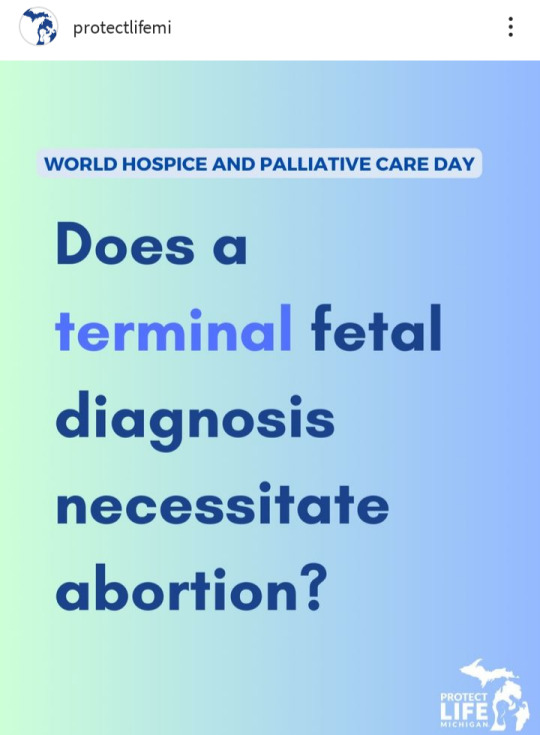

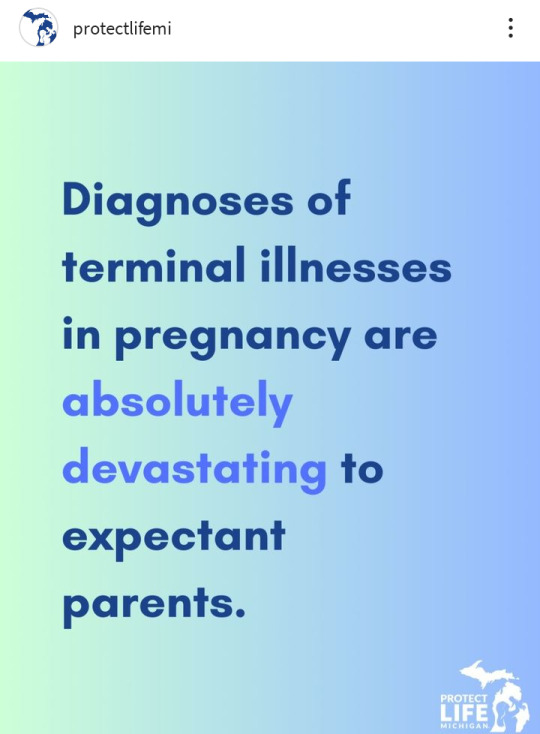



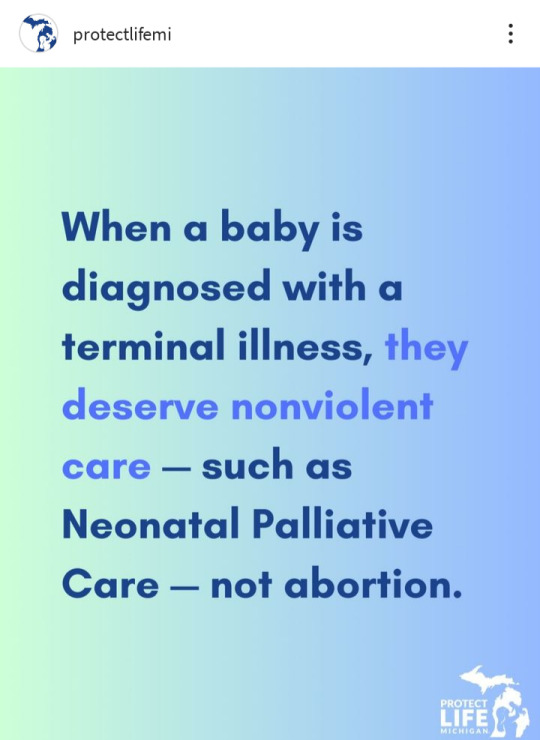
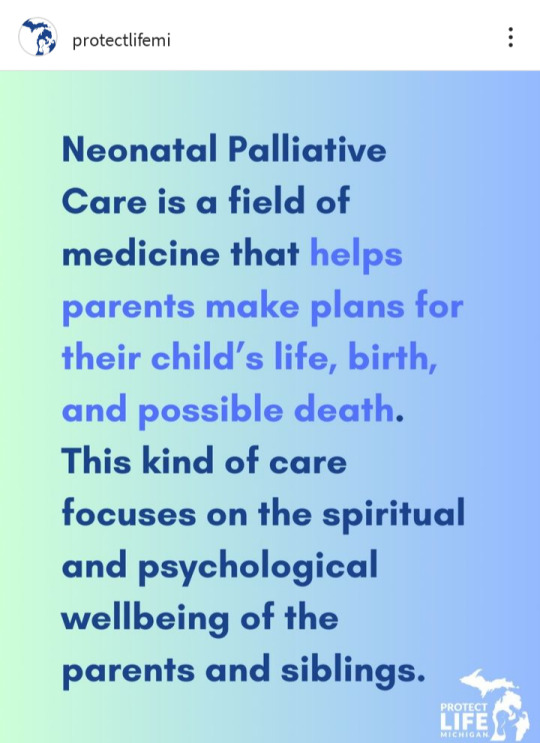
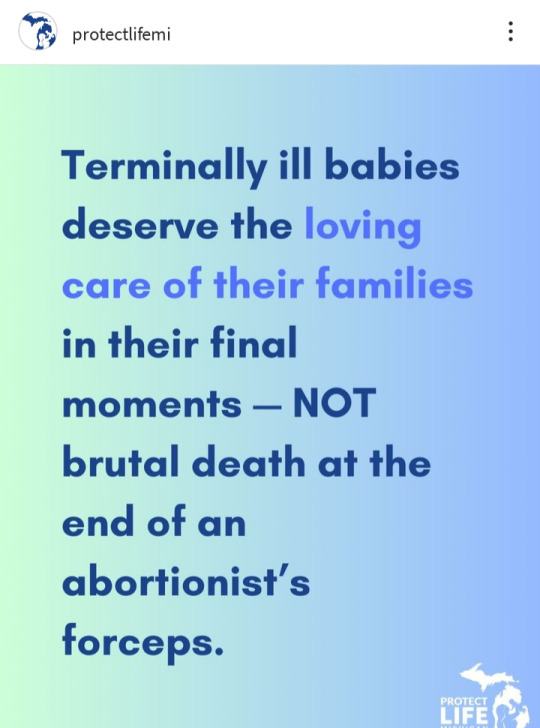
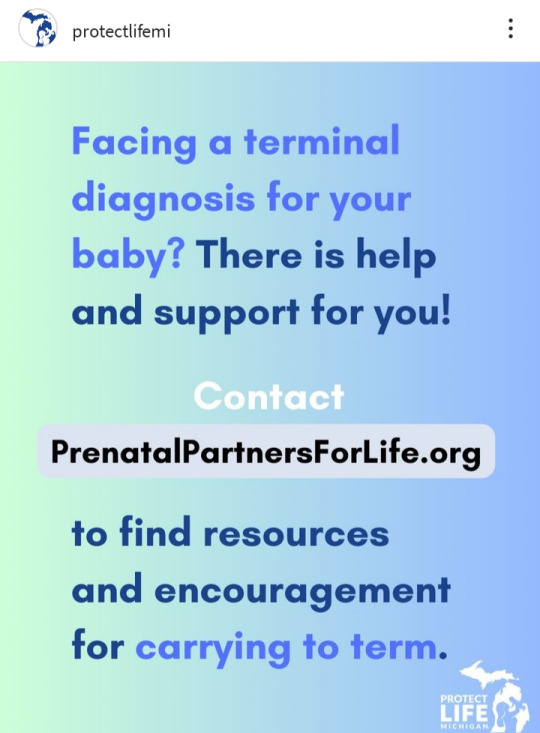
https://prenatalpartnersforlife.org/
#protect life mi#pro life#abortion#anti abortion#neonatal palliative care#prenatal partners for life
275 notes
·
View notes
Text
The Top 10 Nursing Colleges: Your Guide to Specialized Nursing Education
Are you passionate about helping others and interested in pursuing a career in nursing? Specialized nursing education can provide you with the tools and knowledge you need to excel in this rewarding field. Choosing the right nursing college is crucial to your success, as it can significantly impact your education and future career opportunities.
To help you make an informed decision, we have compiled a list of the top 10 nursing colleges that offer specialized nursing programs. Whether you are interested in pediatric nursing, oncology nursing, or any other specialized area, these colleges are known for their excellence in nursing education. Let’s take a closer look at each of them:
**1. Johns Hopkins University**
– Located in Baltimore, Maryland, Johns Hopkins University is known for its prestigious nursing program.
– Offers specialized programs in areas such as adult-gerontology, family health, and psychiatric-mental health nursing.
- Provides hands-on clinical experience and cutting-edge research opportunities for students.
**2. University of Pennsylvania**
- The University of Pennsylvania School of Nursing is one of the oldest nursing schools in the United States.
– Offers specialized programs in neonatal nursing, nurse anesthesia, and women’s health nursing.
– Known for its strong emphasis on evidence-based practice and interdisciplinary collaboration.
**3. Duke University**
– Duke University School of Nursing is located in Durham, North Carolina and offers a wide range of specialized nursing programs.
– Provides opportunities for students to work in clinical settings and engage in research projects.
– Known for its commitment to diversity and inclusion in nursing education.
**4. University of California, San Francisco**
– The School of Nursing at UCSF is renowned for its innovative approach to nursing education.
– Offers specialized programs in pediatric nursing, oncology nursing, and public health nursing.
– Provides students with access to state-of-the-art facilities and renowned faculty members.
**5. University of Washington**
– Located in Seattle, Washington, the University of Washington School of Nursing offers a diverse range of specialized nursing programs.
– Provides students with opportunities to engage in community outreach and global health initiatives.
– Known for its strong emphasis on leadership development and interprofessional education.
**6. Columbia University**
– Columbia University School of Nursing, located in New York City, is known for its rigorous academic standards and clinical training.
- Offers specialized programs in nurse-midwifery, nurse anesthesia, and palliative care nursing.
– Provides students with access to a wide range of clinical settings and research opportunities.
**7. University of Michigan**
– The University of Michigan School of Nursing, located in Ann Arbor, Michigan, is recognized for its commitment to innovation and excellence.
– Offers specialized programs in psychiatric nursing, cardiovascular nursing, and critical care nursing.
– Provides students with opportunities to work with top healthcare providers and researchers.
**8. Yale University**
– Yale School of Nursing, located in New Haven, Connecticut, is known for its world-class faculty and cutting-edge research.
– Offers specialized programs in gerontology nursing, women’s health nursing, and nursing informatics.
– Provides students with opportunities to work in diverse clinical settings and engage in community-based projects.
**9. Emory University**
– Emory University School of Nursing, located in Atlanta, Georgia, is known for its strong focus on social justice and equity in healthcare.
– Offers specialized programs in pediatric nursing, oncology nursing, and global health nursing.
– Provides students with opportunities to engage in interdisciplinary collaboration and community outreach initiatives.
**10. University of North Carolina, Chapel Hill**
– The School of Nursing at UNC Chapel Hill is known for its dedication to education and research.
– Offers specialized programs in nurse-midwifery, public health nursing, and nurse anesthesia.
– Provides students with opportunities to work in clinical settings and participate in global health initiatives.
**In conclusion**, specialized nursing education can open up a world of opportunities for you in the field of healthcare. By choosing one of the top nursing colleges mentioned above, you can gain the knowledge and skills needed to excel in your chosen specialty. Remember to research each college thoroughly and consider factors such as program offerings, faculty expertise, and clinical opportunities before making your decision. Good luck on your journey to becoming a specialized nurse!
youtube
https://nursingcertificationcourses.com/the-top-10-nursing-colleges-your-guide-to-specialized-nursing-education/
0 notes
Text
Discovering the Best Hospital in Nagpur: A Guide to Quality Healthcare
Finding the best hospital for your medical needs is crucial for ensuring you receive the highest quality care. Nagpur, a rapidly growing city, boasts several top-notch hospitals equipped with modern facilities and staffed by experienced medical professionals. Whether you're seeking routine check-ups, specialized treatments, or emergency care, knowing what to look for in a hospital can make a significant difference in your healthcare experience. Here’s a comprehensive guide to finding the best hospital in Nagpur.

Factors to Consider When Choosing a Hospital
Reputation and Accreditation: A hospital’s reputation is a strong indicator of its quality. Look for hospitals that are accredited by reputable organizations, as this ensures they meet specific standards of care and safety.
Specialized Services: Depending on your medical needs, you may require specialized care. Check if the hospital offers services in fields such as cardiology, neurology, orthopedics, oncology, and maternity care.
Experienced Staff: The expertise of doctors, nurses, and support staff is crucial. A hospital with experienced and highly qualified medical professionals can provide better diagnosis and treatment.
Advanced Technology: Modern medical technology plays a vital role in accurate diagnosis and effective treatment. Look for hospitals that invest in the latest equipment and medical technologies.
Patient Reviews and Testimonials: Reading reviews and testimonials from previous patients can give you an insight into the quality of care provided by the hospital. Positive feedback from patients is a good sign of reliable healthcare services.
Location and Accessibility: The hospital’s location is also an important factor. Choose a hospital that is easily accessible, especially in case of emergencies.
What Makes a Hospital Stand Out?
Comprehensive Care: The best hospitals offer a wide range of services under one roof. This includes emergency care, outpatient services, inpatient care, surgical facilities, diagnostic services, and specialized departments.
Personalized Treatment Plans: Each patient is unique, and the best hospitals create personalized treatment plans tailored to individual needs.
Focus on Preventive Care: Preventive care is essential for maintaining good health and preventing serious illnesses. Leading hospitals emphasize preventive measures such as regular health check-ups, vaccinations, and wellness programs.
Patient-Centric Approach: A hospital that prioritizes patient comfort and satisfaction stands out. This includes courteous staff, clean facilities, and a supportive environment that makes patients feel cared for and respected.
Top Medical Specialties
Cardiology: Heart-related issues are common, and having access to a good cardiology department is essential. Look for hospitals with experienced cardiologists and state-of-the-art cardiac care units.
Orthopedics: For bone and joint-related problems, a hospital with a strong orthopedics department is important. This includes facilities for joint replacements, trauma care, and rehabilitation.
Neurology: Neurological disorders require specialized care. Choose hospitals with experienced neurologists and advanced neuro-imaging facilities.
Oncology: Cancer treatment requires comprehensive care involving surgery, chemotherapy, radiation, and palliative care. Leading hospitals have multidisciplinary teams for effective cancer treatment.
Maternity and Neonatal Care: For expecting mothers, it’s vital to find a hospital with excellent maternity services and neonatal intensive care units (NICUs) for newborns.
Emergency and Critical Care
Emergencies can occur at any time, and having access to a hospital with a well-equipped emergency department is crucial. The best hospitals have 24/7 emergency services, advanced life support systems, and a team of trained emergency physicians and staff. Critical care units, such as Intensive Care Units (ICUs) and High Dependency Units (HDUs), are also essential for managing serious health conditions.
Supporting Facilities
Diagnostic Services: Accurate diagnosis is the first step towards effective treatment. The best hospitals offer comprehensive diagnostic services, including laboratory tests, imaging (X-rays, MRI, CT scans), and pathology.
Pharmacy Services: In-house pharmacy services ensure that patients have easy access to prescribed medications without any delay.
Rehabilitation and Physiotherapy: Post-treatment care is vital for recovery. Leading hospitals provide rehabilitation and physiotherapy services to help patients regain their strength and mobility.
Support Services: Additional support services such as counseling, diet and nutrition advice, and patient education programs contribute to overall well-being.
Conclusion
Finding the best hospital in Nagpur involves considering various factors such as reputation, specialized services, experienced staff, and advanced technology. A hospital that offers comprehensive care, personalized treatment plans, and focuses on patient satisfaction is ideal. Whether you need routine check-ups or specialized medical care, choosing the right hospital ensures you receive the best possible treatment and support for your health and well-being.
0 notes
Text
The Evolution of Pediatric Critical Care: Advancements and Specialized Services

Pediatric critical care has witnessed remarkable advancements over the years, leading to improved outcomes for critically ill children. This specialized field of medicine focuses on caring for infants, children, and adolescents with life-threatening conditions, and it continues to evolve to meet the unique needs of these young patients.
Advancements in Pediatric Critical Care
Pediatric Intensive Care Units (PICUs): The establishment of dedicated PICUs with specialized equipment, trained staff, and child-friendly environments has significantly improved the quality of care for critically ill children.
Ventilation Strategies: Pediatric critical care has developed advanced ventilation strategies tailored to children's respiratory needs, reducing the risks associated with mechanical ventilation.
Paediatric Cardiac Care: Advances in paediatric cardiac surgery and cardiology have improved the management of congenital heart conditions, leading to higher survival rates.
Innovations in Monitoring: The development of minimally invasive monitoring techniques allows for continuous assessment of vital signs and organ function in paediatric patients, leading to early detection of complications.
Neonatal Intensive Care Units (NICUs): NICUs provide specialized care for premature infants and those born with medical complications, greatly increasing their chances of survival and healthy development.
Paediatric Sedation and Pain Management: Paediatric critical care teams have developed improved methods for sedation and pain management, ensuring that young patients are as comfortable as possible during treatment.
Specialized Services in Paediatric Critical Care
Paediatric Trauma Care: Paediatric trauma centres offer specialized care for children who have experienced accidents or injuries, ensuring they receive age-appropriate treatment.
Paediatric Neurocritical Care: Specialized neurocritical care units focus on children with neurological conditions, providing advanced monitoring and interventions.
Pediatric Oncology Critical Care: Children with cancer may require critical care during their treatment journey, and specialized oncology critical care services cater to their unique needs.
Paediatric Transport Teams: Dedicated paediatric transport teams ensure that critically ill children can safely and swiftly be moved between healthcare facilities, improving access to specialized care.
Paediatric Palliative Care: Paediatric palliative care teams focus on improving the quality of life for children with life-limiting illnesses, providing comprehensive support to patients and their families.
Conclusion
The evolution of pediatric critical care has transformed the way we care for critically ill children. Advancements in technology, specialized units, and a growing body of knowledge have contributed to improved outcomes and a higher quality of life for young patients facing life-threatening conditions. As pediatric critical care continues to advance, it brings hope to families and healthcare providers alike, emphasizing the importance of specialized and compassionate care for our youngest and most vulnerable patients.
#ICU Setup service at home Near me#icu service at home#ICU at home Near me#ICU installation service at home Near me#Critical care service at home Near me#critical care services#home icu set up#home icu setup#icu setup equipment
0 notes
Text
Exploring Specializations in BSc Nursing: Opportunities and Career Pathways
Introduction:
BSc Nursing is a dynamic and versatile field that offers various specializations, allowing nursing professionals to develop expertise in specific areas of healthcare. Specialization not only enhances nurses' knowledge and skills but also opens up exciting career pathways. This article explores the diverse opportunities and career paths available to BSc Nursing graduates through different specializations, highlighting the significance of choosing the right pathway to pursue a fulfilling and rewarding nursing career.
Pediatric Nursing:
Specializing in pediatric nursing involves providing care to infants, children, and adolescents. Pediatric nurses work in hospitals, clinics, and pediatric intensive care units (PICUs), catering to the unique healthcare needs of young patients and their families.
Obstetrics and Gynecology Nursing:
Nurses specializing in obstetrics and gynecology care for women during pregnancy, childbirth, and postpartum. They may work in labor and delivery units, maternity wards, and reproductive health centers.
Critical Care Nursing:
Critical care nurses are specialized in providing intensive care to critically ill or unstable patients. They work in intensive care units (ICUs), trauma centers, and emergency departments, where immediate and specialized care is crucial.
Mental Health Nursing:
Specializing in mental health nursing focuses on caring for individuals with mental health disorders. Mental health nurses work in psychiatric hospitals, outpatient clinics, and community mental health settings.
Community Health Nursing:
Community health nurses focus on promoting and maintaining the health of communities and populations. They work in public health departments, schools, and community centers, engaging in health education and preventive care.
Oncology Nursing:
Oncology nurses specialize in caring for patients with cancer. They work in cancer treatment centers, providing support, administering chemotherapy, and managing symptoms.
Geriatric Nursing:
Geriatric nurses specialize in caring for elderly patients, addressing age-related health issues and providing support for aging individuals in nursing homes and geriatric care facilities.
Neonatal Nursing:
Neonatal nurses care for premature or sick newborns in neonatal intensive care units (NICUs). They are trained to handle complex medical conditions in newborns.
Cardiovascular Nursing:
Cardiovascular nurses specialize in caring for patients with heart and vascular conditions. They work in cardiac units, assisting with diagnostic procedures and managing heart-related illnesses.
Operating Room (OR) Nursing:
OR nurses specialize in perioperative care, assisting surgeons during surgeries and ensuring patient safety in the operating room.
Palliative Care Nursing:
Palliative care nurses focus on providing comfort and support to patients with serious illnesses, improving their quality of life and managing symptoms.
Nephrology Nursing:
Nephrology nurses specialize in caring for patients with kidney diseases and those undergoing dialysis.
Conclusion:
Specializations in BSc Nursing offer diverse and fulfilling career opportunities in various healthcare settings. By choosing a specific pathway, nursing professionals can acquire in-depth knowledge and expertise in their chosen field, contributing significantly to patient care and healthcare outcomes. Whether it's pediatric nursing, critical care, mental health, or any other specialization, BSc Nursing graduates can shape their careers to align with their passion and make a positive impact in the lives of their patients. Continual learning, dedication, and a commitment to patient-centered care pave the way for a successful and rewarding nursing career in any chosen specialization.
0 notes
Text
Noida hospital list - Noida is one of the most rapidly developing cities in India and is home to many renowned hospitals. If you are looking for the best hospitals in Noida, then Apollo Hospital is the first name that comes to mind. Apollo Hospital in Noida is the flagship hospital of the renowned Apollo Hospitals Group, one of India’s largest healthcare providers. It is a multi-specialty hospital with a wide range of medical services available. Apollo Hospital in Noida is known for its high standards of patient care and its commitment to providing quality healthcare. This hospital is equipped with the latest medical technology, which helps to ensure that patients receive the best possible care.
The hospital also has a team of highly qualified doctors, nurses, and other medical staff who are dedicated to providing the best possible care to the patients. The hospital provides a wide range of services, such as general medicine, obstetrics, gynecology, pediatrics, orthopedics, cardiology, neurology, urology, ophthalmology, psychiatry, and many more. There are also specialized centers for cancer, critical care, and trauma. The hospital also has a comprehensive rehabilitation center for people with disabilities.
The hospital also has a modern laboratory and a comprehensive diagnostic center. It also has a 24-hour emergency service, which can be contacted at any time of the day or night. The hospital also has a pharmacy, which is well-stocked with medicines and other medical supplies. Apollo Hospital in Noida also has a number of other facilities which include a cafeteria, a library, a cafeteria, a swimming pool, a gym, a health club, and a shopping complex. The hospital also has a host of other amenities such as a car park, a business center, and a recreation center. The hospital also provides a wide range of services to its patients, such as medical check-ups, health check-ups, medical consultation, and medical advice. The hospital also provides a range of medical treatments such as surgery, chemotherapy, radiotherapy, and many more. The hospital also provides a host of other services to its patients, such as physiotherapy and occupational therapy. The hospital also offers a variety of medical services for children, such as pediatric and neonatal care. The hospital also provides a wide range of services for women, such as antenatal care, gynecology, obstetrics, and many more.
The hospital also provides a range of medical services for older people, such as geriatrics and gerontology. The hospital also provides a range of services for the disabled, such as physical therapy, occupational therapy, and speech therapy. The hospital also provides a range of services for the mentally ill, such as psychiatric care. The hospital also provides a range of services for the terminally ill, such as hospice and palliative care.
The hospital also provides a range of services for the terminally ill, such as home care and end-of-life care. Apollo Hospital in Noida is one of the best hospitals in the city and is known for its commitment to providing quality healthcare to its patients. It is a hospital that has been providing quality healthcare services to its patients for many years.
0 notes
Text
Pediatric Surgeries can be classified as regular or complex, depending on how advanced the illness is in the newborn child-patient. Newborns may often require surgical intervention as a way to solve a complication. After careful diagnosis via blood tests, X-rays, MRI, CT scan, and other lab tests are conducted to ascertain the exact problem. Pediatric & Neonatal surgical care also requires qualified and compassionate nursing staff to tirelessly support palliative care alongside the treatment.
The Department of Paediatrics and Neonatology at Sohana Hospital is dedicated to providing the highest level of neonatal care. We collaborate with a range of medical and surgical specialists and subspecialists to care for sick infants, including those with Extreme prematurity, Respiratory failure, Low birth weight, Congenital heart disease
We continue to help babies grow into healthy individuals and make parenthood easier by providing a cradle of care.
0 notes
Text
This research article deals with neonatal palliative care guidelines which increasingly encourage parents to (1) provide care to their dying babies, and (2) spend time with their babies before and after death. The purpose of this specific article was to explore and better understand how parental actions of providing care and spending time with their dying babies impacted the memory-making process of the grieving parents.
Although globally millions of babies die within the first month after birth, parents grieving such a loss face a unique challenge because their grief is rarely recognized by society, meaning it can rarely be publicly acknowledged and/or mourned or socially supported. This “disenfranchised grief” makes it more difficult for parents to find appropriate ways to create meaning during the emotional turmoil inherent in losing an infant.
28 notes
·
View notes
Text
Dr Maciej Socha is one of the few outspokenly pro-choice gynaecologists in Poland. He specialises in perinatology at a public hospital in the north of the country and runs his own private clinic. Over the years, he has overseen dozens of births and given prenatal care to women whose foetuses were diagnosed with birth defects.
Yet, since the ruling, he feels forced to behave just like an abortion objector would when he comes across patients with severe foetal abnormalities.
“Even if I am 100 percent sure that the baby will not be able to live normally after it is born, I now have to say no to the patient [considering an abortion] … you need to deal with this diagnosis,” he tells Al Jazeera on the phone from Gdańsk.
“[Some months] ago, I would have said … I’m not really convinced what this chilling effect is, but now I can observe it; you know, almost clinically. It’s just changing the way of thinking of my patients, the way of thinking of gynaecologists, the way of diagnosing procedures, the way people are working in this area. This is terrifying,” he says.
The Polish government has promised to increase funds for antenatal care, including psychological support for women diagnosed with foetal abnormalities and neonatal palliative care. Sixteen MPs have also put forward another draft law, currently going through the Sejm, that would require pregnant women diagnosed with such defects to be referred to antenatal hospices.
Rights groups including FEDERA are concerned these could become places where women could be monitored rather than helped, and their decisions influenced – arguing that a “room for crying” cannot be a substitute for a woman’s right to choose.
“This discussion is very, very strange in the Polish atmosphere,” Dr Socha argues, “because you’re not talking about the specific cases, you’re not talking about the individual, you’re just talking about this religious ideology.”
-The mental health cost of Poland’s abortion ban
1 note
·
View note
Text
Summary of Junior Doctor Life - Part Nine:
Got a call at 3am from the Advanced Nurse Practitioners who do rounds of the hospital at night. They basically wanted to make sure I wasn’t snowed under, which was lovely of them. So lovely in fact, that I didn’t have the heart to tell them that the reason they’d missed me during their rounds was because I was holed up in the Doctors’ Room watching ‘Derry Girls’.
Good news can feel like an anomaly on some days and miraculous recoveries are as rare as you’d expect, but they can happen. By the end of my first night-shift I had two patients who were very unwell and had shown no improvement despite being given appropriate treatment. One of them had gone to ICU in the hope that he might ultimately pull through, but my registrar received a call at 7am informing him that nothing more could be done. The other patient was a lady who was only appropriate for ward-level care (anything more would likely be futile), and we ultimately had to start her on morphine via a syringe-driver to provide comfort because she was so breathless. I left work that morning feeling rather deflated and expecting both patients to die during the day. The man sadly did pass away in ICU, however I arrived at work to find that the woman had remained relatively stable. Two nights later I was taking her off her syringe-driver because she frankly didn’t need it, and two weeks later we’re now thinking of getting her home. Not the most common outcome for someone who at one point was knocking on death’s door, but certainly a welcome one!
During a rather busy night, I got a call twenty minutes into my break asking me to come back to the ward immediately. When I tried to get some information, the nurse barely managed five words before resorting to “Just come to the ward!” Turns out one of the patients had managed to disconnect the attachment to his cannula, meaning there was nothing stopping his blood from leaving the vein and escaping into the outside world. By the time this was discovered, his bedsheets were almost completely red and his blood pressure was in his boots, to the point where we needed to pour a litre of IV fluids into him as quickly as the machines would allow.
He was ultimately fine and cracking jokes before we’d even got one bag of fluids into him (including, but not limited to, “I thought I’d had a wet dream!”). What made him more problematic, however, was that he’d been admitted in the first place with chronic anaemia, which blood loss obviously doesn’t help. It wasn’t long before we were arranging a blood transfusion on top of the IV fluids we’d already given him.
Got called to prescribe some IV fluids on my last day of nights, at the tail-end of what had been a rather hectic shift. In the hopes of grabbing a break, I asked if there was anything else needing done that I could quickly power through, only for the nurse to say she didn’t know. I must have looked about as rotten as I felt, because her friend immediately came to my rescue and said “Well go and check, the poor girl wants to sleep!”
We’ve had a couple of patients recently with horrendous kidney failure leading to fluid overload because they can’t produce urine, so now several nurses are acutely concerned with how often patients are peeing. It’s not an unfounded concern, but the patients they make you aware of tend to have perfectly normal kidney function on their blood results and very little urine in their bladder on an ultrasound scan (we might worry about urinary retention if they were holding over 600mls). The kicker is that on particularly busy shifts, those same patients are often managing to pee far more regularly than we are.
Confirming a death tends to be more of a box-ticking exercise than anything else. Often the nurse will do a quick check themselves beforehand and they may even leave it a while before contacting a doctor to give the family space to say goodbye. Ultimately, by the time we enter the patient’s room it tends to be obvious that they’re gone before you even check for a pulse, and thankfully none of us have had a Monty Python-esque “I’m not dead yet!” moment so far.
One of my colleagues came close though. After being asked to confirm an expected death of a palliative patient, he walked into the room only for said patient to turn his head when he announced himself. Apparently he managed to recover from his mini heart-attack just in time to blurt out “Just wanted to see how you were doing sir!” and perform an impromptu review, despite wondering what the hell was going on and why he’d been asked to confirm the death of a very much alive man. He got his answer upon leaving the room, when the nurse rolled her eyes and said, “The next room, you pillock!”
I spent my night-shifts with a genuinely lovely registrar who was always available if I needed to page him and managed to put me at ease even when we were dealing with really sick or dying patients. He was such a reassuring presence that the two hectic nights (out of four) didn’t necessarily feel like bad nights. In contrast, the girl who did her night-shift after me got a registrar who was sick (and therefore made her examine every patient on his behalf), complained very loudly about the fact that he was at work, looked rather pissed off at me when I dared to go home (despite the fact that my back-shift should have ended half an hour earlier), and proceeded to spend eight hours of a twelve-hour shift sleeping on the mattress in our Doctors’ room so my colleague had nowhere to go to rest. It’s luck of the draw which registrar you end up with, but if our positions were swapped I probably would have spent my night-shifts craving the sweet release of death.
My registrar’s quirk is that he has a weird love of taking blood from the femoral artery (accessed via the groin) in patients with horrendous venous access. To be fair, there is a certain logic to this - it’s far less painful than taking arterial blood from the wrist and if you can get into the femoral artery, you’re more likely to collect a large sample so you can run more tests. It’s just always amusing to witness an enthusiastic Spanish man declare, “Let’s go for the groin!” when he finds out we’re struggling to take blood from a patient.
We’ve finally found out what jobs we’re getting next year! My FY2 is going to be spent between Geriatrics, Neonates and Obstetrics/Gynaecology so there’ll be a whooole lotta babies 😊 Still not too keen on Geriatrics, but I’m delighted about the Neonates job and Obstetrics is the only surgical specialty I actually like so I’m pretty thrilled overall. Though I imagine my poor sister - who happens to be a neonatal nurse - is going to be subjected to a lot of texts which basically boil down to ‘Help!!!’
#junior doctor shenanigans#medicine#rambling#long post#my surgical block is over in a month which is pretty surreal#the shifts can be rubbish but I'm honestly going to miss it far more than I thought I would
5 notes
·
View notes
Text
Demands on medical staff high, no more "heroes of the pandemic" and chronic staff shortages
K is a nurse, and is getting messages via text constantly for (mass) requests to fill gaps in shifts.
The middle management team never seems to be short staffed, while the Nurse Unit Managers (NUMs; nurses who are in charge of staff of that shift) are constantly scrabbling staff (under) capacity and patient care requirements ie 1 nurse to 4 patients.*
*general care. Ratios vary if say, intensive care, neonatal, palliative, covid, emergency department....
K (amongst others) is weary of getting the text requests, usually "Urgent- require shift coverage for X nurses Z shift at location"
A few of K nurse friends are, or already have, transferred out into different yet related fields. Like medical sales, or just casual pool where the choice is easier.
The side effects is that there are lots of junior nurses, fairly fresh and lacking experience, almost filling the gaps.
Sadly, the 'pandemic heroes' narrative has disappeared from the fickle media output...

12 August 2022
0 notes
Text
Neonatal Palliative Care for Nurses
Neonatal Palliative Care for Nurses
Neonatal Palliative Care for Nurses
Alexandra Mancini
Categories:
Medicine – Nursing
Year:
2020
Publisher:
Springer Nature
Language:
english
ISBN 10:
303031877X
ISBN 13:
9783030318772
30.81

View On WordPress
0 notes
Link
0 notes
Photo

Pediatric palliative care is a field of significant growth as health care systems recognize the benefits of palliative care in areas such as neonatal intensive care, pediatric ICU, and chronic pediatric illnesses. Pediatric Palliative Care, the fourth volume in the HPNA Palliative Nursing Manuals series, highlights key issues related to the field. Chapters address pediatric…
0 notes
Photo

Handbook of Perinatal and Neonatal Palliative Care: A Guide for Nurses, Physicians, and Other Health Professionals (Original PDF from Publisher) #PalliativeMedicine #Pediatrics #SpringerPublishingCompany
0 notes
Text
Compare cheap health insurance | Pay less than $21 a week
Sharengay Trang Tin Tức Độc Đáo VIDEO
Compare cheap health insurance | Pay less than $21 a week
We’re reader-supported and may be paid when you visit links to partner sites. We don’t compare all products in the market, but we’re working on it!
Below are some of the cheapest health insurance policies from Finder partners. They all include basic hospital and extras, meaning you’ll have access to an entry-level of private hospital care as well as routine extras like general dental. All of these options will exempt you from the Medicare levy surcharge.
Bạn đang xem: Compare cheap health insurance | Pay less than $21 a week
If you’re just looking for the cheapest policy, the tool below can help. Fill in your details and once the results come through, you can sort by price. Easy.
What’s affordable is different for everyone, but no matter what your budget, there are some universal tips that could help you get more bang for your buck.
Check your coverage. If you already have health insurance and are looking for a cheaper option, consider downgrading your policy. You may be paying for benefits you don’t need.
Compare online. Comparing health insurance online is the best way to see what else is out there and to get a good idea of how much you can expect to pay for a policy.
Look for discounts. Lots of health funds run offers to attract new customers. This could be a reduced-price premium, free coverage for a few weeks or some other reward.
Pay annually. Insurers will sometimes offer a discount if you pay annually, plus you may see reduced administration fees.
Pay before 1 April. Prices go up on 1 April every year. Pay in advance before this date and you’ll lock in last year’s rates for a while longer.
Pay by direct debit. Insurers typically reward customers who set up a direct debit. Your premium comes straight out of the bank, so it’s convenient and could be cheaper.
Increase your excess. Choosing a higher excess will lower your premium. Just remember, if you’re looking to avoid the Medicare Levy Surcharge or Lifetime Health Cover loading, make sure the premium is no higher than $750 for a single person.
Look for a restricted fund. Restricted health funds offer cover to people working in specific industries as well as their families. These funds aren’t run for profit, so they can be cheaper, but you have to find one that you’re eligible for.
Check if your employer partners with a health fund. Health funds are allowed to give discounts of up to 12% to companies, which they can pass on to employees.
We looked at health funds in Australia – they’re the ones that are open to everybody, rather than specific groups. These are the cheapest policies in each category.
*Prices quoted are based on a single person, living in Sydney, checked in April 2021.
Even the most basic hospital insurance policies must offer restricted coverage in three areas: rehabilitation, psychiatric services and palliative care. The cheapest hospital insurance policies will only cover these three areas. However, some policies may offer additional benefits.
We compared basic hospital insurance policies from three Finder partner health funds to see how their coverage compares. All policies have an excess of $750 and a similar price point.
*Accurate as of April 2021
Xem thêm: Top 8 Địa chỉ sửa chữa điện thoại tốt nhất quận Cầu Giấy, Hà Nội – Toplist.vn
The cheapest health insurance is going to cost $70-$80 a month for a hospital-only policy, but you might not get that much for your money. However, if you can spare a few more dollars every week, you might see a big difference in the level of your cover.
The table below shows the difference in average pricing and treatments by hospital tier. You can see just how much the level of cover increases for a relatively small monthly amount.
Basic $79.86 3
Hospital psychiatric services
Palliative care
Rehabilitation
Bronze $90.87 21
Brain
Eye
Ear, nose and throat
Tonsils, adenoids and grommets
Bone, joint and muscle
Joint reconstructions
Kidney and bladder
Male reproductive system
Digestive system
Hernia and appendix
Gastrointestinal endoscopy
Miscarriage and termination of pregnancy
Chemotherapy, radiotherapy and immunotherapy for cancer
Skin
Breast surgery (medically necessary)
Diabetes
Hospital psychiatric services
Palliative care
Rehabilitation
Silver $126.81 29
Brain
Eye
Ear, nose and throat
Tonsils, adenoids and grommets
Bone, joint and muscle
Joint reconstructions
Kidney and bladder
Male reproductive system
Digestive system
Hernia and appendix
Gastrointestinal endoscopy
Miscarriage and termination of pregnancy
Chemotherapy, radiotherapy and immunotherapy for cancer
Skin
Breast surgery (medically necessary)
Diabetes
Heart, lung and vascular system
Blood
Back, neck and spine
Plastic and reconstructive surgery (medically necessary)
Dental surgery
Podiatric surgery (provided by an accredited podiatric surgeon)
Implantation of hearing devices
Hospital psychiatric services
Palliative care
Rehabilitation
Gold $170.90 38
Brain
Eye
Ear, nose and throat
Tonsils, adenoids and grommets
Bone, joint and muscle
Joint reconstructions
Kidney and bladder
Male reproductive system
Digestive system
Hernia and appendix
Gastrointestinal endoscopy
Miscarriage and termination of pregnancy
Chemotherapy, radiotherapy and immunotherapy for cancer
Skin
Breast surgery (medically necessary)
Diabetes
Heart, lung and vascular system
Blood
Back, neck and spine
Plastic and reconstructive surgery (medically necessary)
Dental surgery
Podiatric surgery (provided by an accredited podiatric surgeon)
Implantation of hearing devices
Cataracts
Joint replacement and spinal fusion
Dialysis for kidney disease
Pregnancy, birth and neonates
Assisted reproductive services
Weight loss surgery
Insulin pumps
Chronic pain
Sleep studies
Hospital psychiatric services
Palliative care
Rehabilitation
*Prices accurate as of July 2020.
Cheap health insurance is your best friend if you’re looking to avoid the Medicare levy surcharge and don’t care about coverage. Here’s why:
If you earn over $90,000 a year, or $180,000 a year as a couple, you’ll be hit with an extra tax of between 1% and 1.5% of your income unless you have hospital insurance.
For people in the very lowest threshold, that’s still $900 a year. You can easily find basic hospital insurance for less than that. Just make sure the excess is $750 or less per adult and you’ll be exempt from the extra tax. Hooray!
$95,000 $950 $813 $137 $110,000 $1,375 $813 $562 $145,000 $2,175 $813 $1,362
*For the sample cost of hospital cover, we averaged the price of three different basic policies, offered by three different Australian insurers. All are considered appropriate by the ATO.
Lifetime Health Cover loading adds a 2% fee on top of your hospital insurance for every year you didn’t have cover over the age of 30. That means if you wait until you’re 50 to buy hospital insurance, you’ll be paying 50% more than those who got in early.
If you’re worried this would make health insurance unaffordable in your later years, consider buying a cheap hospital insurance policy before the deadline. That’s usually 1 July, immediately following your 31st birthday.
Buying and maintaining cheap hospital insurance will mean you won’t have to pay that extra loading fee. You can upgrade to a more expensive policy later in life if you like and still be exempt from the extra charge.
No. Two individual policies are the same price as a couples policy with the same level of coverage. In fact, buying couples health insurance may actually end up being more expensive than if you’d bought separate health insurance policies.
That’s because, in a couples policy, both members have to be on the same plan. So if one person wants top tier coverage, the other person has to get it too. If you and your partner want different levels of coverage, it’s worth looking into individual policies instead.
If you’re looking for health insurance to cover your family, there are a few things to bear in mind, so you can find the best policy for you and your loved ones.
Xem thêm: JobNow – nền tảng tuyển dụng, tìm việc làm nhanh, thông minh
Look for policies that waive the hospital excess for children
Usually, adults will have to pay a set amount whenever they’re admitted into a hospital before the insurer will begin paying out. This is called the hospital excess. However, some insurers don’t require an excess when a child is admitted to hospital. Keep an eye out for these policies!
Think carefully about your level of coverage
Is your family still growing or are they close to leaving the nest? Consider your life stage and the life stages of your family members before making any big decisions. If you might need fertility treatments or pregnancy services further down the line, you’ll need gold-standard cover.
Look for insurers that let children stay on your policy
Some insurers will let your kids stay on your health insurance until they’re 21; others will let them stay until they’re 25. Some will only allow adult children to be covered if they’re full-time students or financially dependent on you. Taking note of the differences could save you or your kids some money in the future.
Technically, you don’t need health insurance. As long as you’re entitled to Medicare, you’ll be covered for free hospital treatment if you’re injured, fall ill or develop a medical condition.
For many people, relying on Medicare is the cheapest option, but there are benefits to having private health insurance, and it can even save some people money.
For example, if you earn over $90,000 a year, or $180,000 a year as a couple, you’re hit with an extra tax unless you have hospital insurance. You can buy cover for less than the cost of the tax penalty, so it makes financial sense to get cover – even if you don’t want it.
Certain extras policies can also save you money if you regularly spend cash on non-hospital healthcare, such as prescription glasses, dental check-ups or even remedial massage. That’s because you can easily claim back more than you pay in premiums over the course of the year.
Remember though, private health insurance doesn’t mean you’ll get treatment for free. Whether it’s a hospital or extras policy, you’ll usually have some out-of-pocket costs. The exceptions are no-gap dental and no-gap optical, which are only offered by some health funds.
Check the deals below before buying health insurance and you could save money on your premium – or get a reward for signing up.
Nguồn: https://sharengay.online
Danh mục: Đời Sống
Compare cheap health insurance | Pay less than $21 a week
from Sharengay Trang Tin Tức Độc Đáo VIDEO https://ift.tt/3e64py8
via IFTTT
0 notes